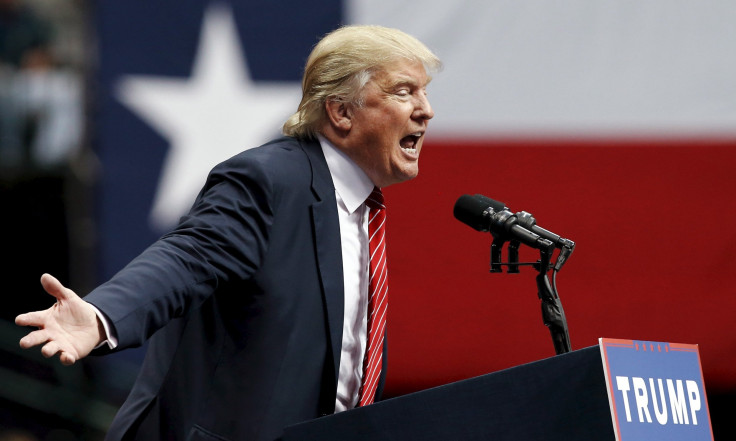Donald Trump's Memorable Moments [Video]

The pundits once said Donald Trump never had a chance. But amid the Republican frontrunner's politically incorrect comments on Mexicans, Muslims and his closest rivals, his popularity is soaring.
With a resounding victory in the Nevada Caucus last week, billionaire businessmanDonald Trump taunted critics who have doubted his candidacy and supporters as he inches closer to the U.S. Republican presidential nomination.
From almost the moment Trump announced he would seek the Republican nomination for president, he has engendered criticism, outrage and support for his colorful speeches, dramatic policy statements, and insults of fellow candidates, reporters, and sometimes entire ethnic groups.
Trump invited the ire of Mexican authorities at his candidacy announcement at how he characterized Mexican immigrants to the United States.
"When Mexico sends its people, they're not sending their best. They're not sending you; they're not sending you. They're sending people that have lots of problems and they're bringing those problems with us. They're bringing drugs. They're bringing crime. They're rapists. And some, I assume, are good people but I speak to border guards and they tell us what we're getting and it only makes common sense, it only makes common sense: they're sending us not the right people. It's coming from more than Mexico. It's coming from all over South and Latin America and it's coming probably, probably from the Middle East," he said in June 2016.
Later last year Trump proposed "a total and complete shutdown of Muslims entering the United States until our country's representatives can figure out what the hell is going on," citing fears of potential terrorism of refugees from Syria.
Trump's most colorful attacks have often been directed at his rivals.
He's referred to Republican rival Marco Rubio as "little Rubio" and characterized him as a "very nasty guy."
His attacks, at times, approach the level of school yard taunts.
"I see him (Rubio) starting to sweat like I have never seen anything like it. Thank god he has really large ears, the biggest ears I've ever seen, because they were protecting him, it was going (makes gesture with hands). I have never seen any human being sweat like this guy," Trump told an audience in Bentonville, Arkansas.
Republican rival Ted Cruz, who Trump often refers to as "the Canadian" hasn't fared much better.
"I've never seen seen anybody that lied as much as Ted Cruz and he goes around saying he's a Christian. I don't know, you are really going to have to study that, Trump said during a campaign stop in South Carolina.
Members of the media have also been skewered by Trump.
During a November campaign rally in South Carolina, Trump defended his unsubstantiated assertions that thousands of Muslims were seen in New Jersey cheering the collapse of the Twin Towers on Sept. 11, 2001. During the speech, he singled out New York Times investigative reporter Serge Kovaleski for a story he wrote a few days after the attacks while he was then a Washington Post correspondent, flailing his arms and distorting his speech in an imitation of the journalist.
Kovaleski suffers from a congenital condition called arthrogryposis, which limits mobility and muscle development in the joints.
Whether he wins the primary elections in a slew of southern states on March 1, known as Super Tuesday, Trump's candidacy promises to continue to upend the established political order as the presidential race intensifies ahead of the Nov. 8 election.
© Copyright Thomson Reuters 2024. All rights reserved.











